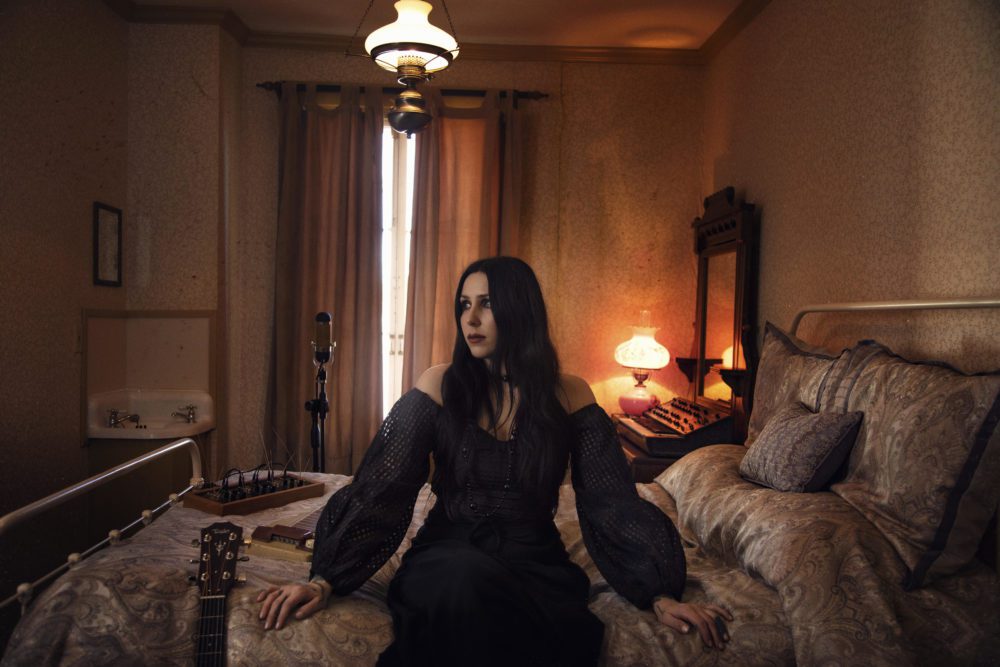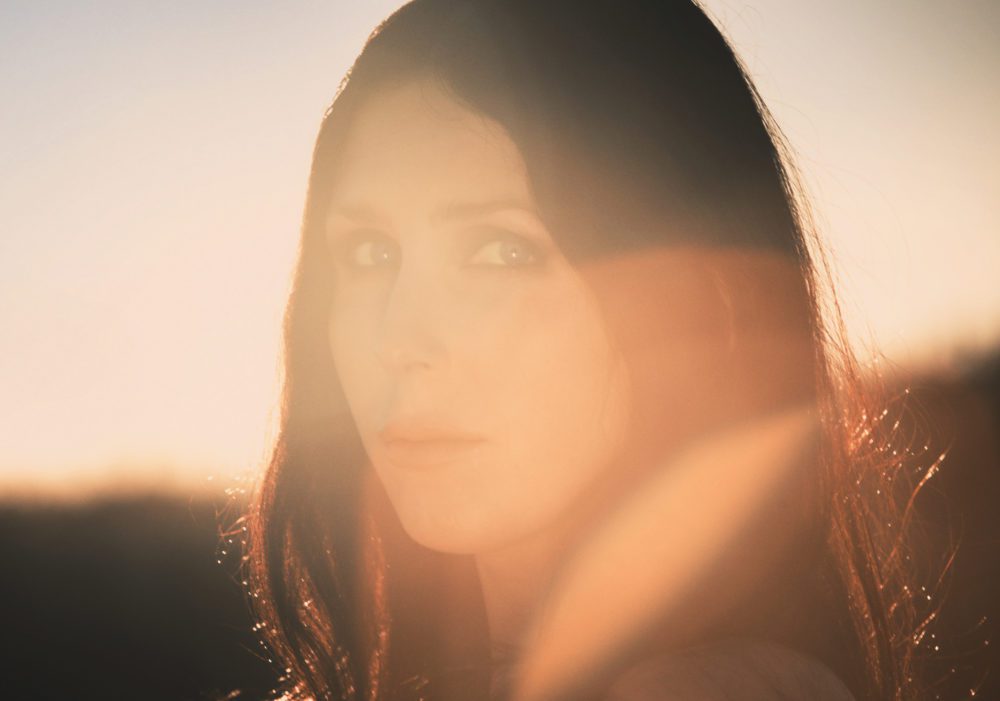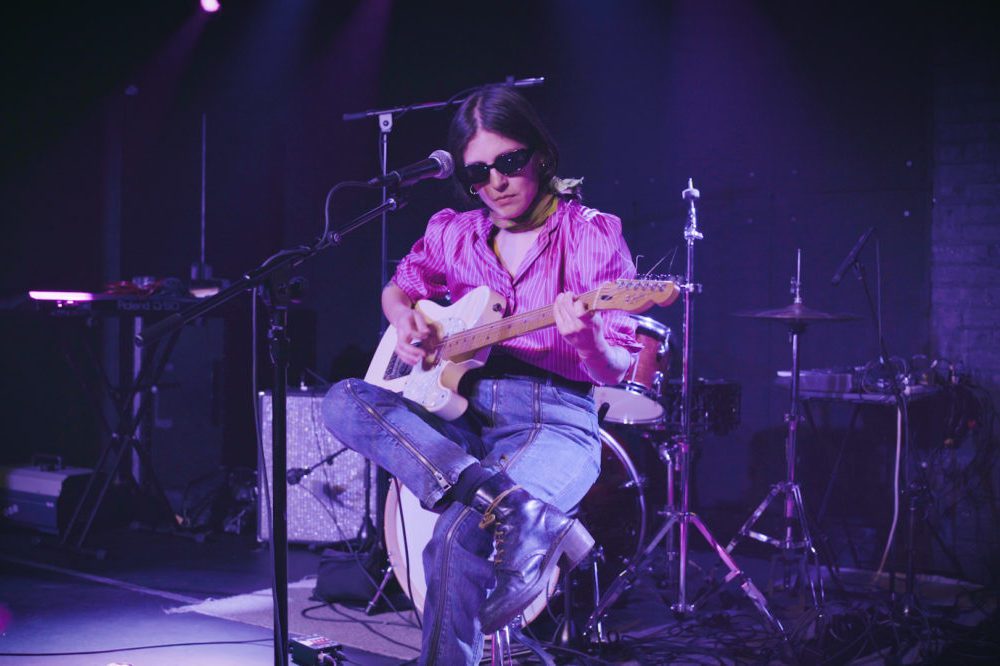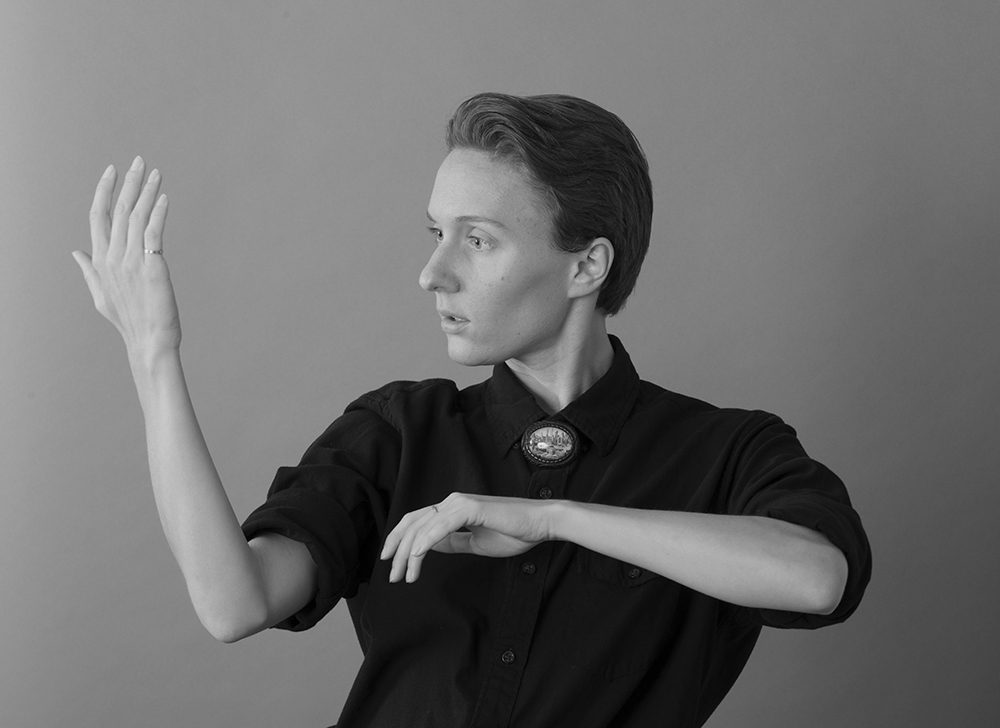

On Birth of Violence, released this past September, Chelsea Wolfe shines in quiet introspection. Eschewing the heavy crunch of 2017’s Hiss Spun, Wolfe drew from folk music influences and acoustic sounds, weaving threads of spirituality, perceptions of femininity, personal reflection and modern, dark Americana that stands out as both a highlight of 2019 releases and of Wolfe’s career. Complex, emotional and aware, it is Birth of Violence is a fitting soundtrack for the end of the decade.
Wolfe had been on the go for years and says that making Birth of Violence gave her a chance to settle into her Northern California home, where she had moved two years earlier and would record the album. That process came with its own challenges, she explains in an email interview – “mainly of making a great-sounding record in a makeshift home studio.”
“The catalyst for this acoustic album was that I was starting to lose my mind on the road last year, and there was this nagging voice telling me to take a break or I was going to snap. These acoustic songs came out during those moments, as some sort of personal solace,” she says. “So, I decided to block out much of this past year to make Birth of Violence, and to take some time to focus on personal healing. It’s not easy to stop a moving train, and it isn’t fun to tell your bandmates and team that you need to take a break, but I knew it was something I needed to do, and luckily everyone was really supportive.”
The result was not what Wolfe herself had initially expected. “To be honest, I first envisioned this album being extremely stripped down, just guitar and vocals and a few overdubs, but as the songs were coming together, it felt lonesome – the process of working alone, but more importantly the songs themselves felt a bit far away, like they needed a setting to live in,” Wolfe says. She brought in bandmate Ben Chisholm to engineer and help produce the album. “Ben and I have worked together for about 10 years now so our musical language flows easily, and I feel like he really understood my abstract concept of this album being my ‘space western’ sonically.”
Initially, Wolfe’s influences for this album came from folk singers like Joan Baez, Odetta and Jackson C. Frank. Later on, she incorporated David Bowie and John Lennon into that mix, which she credits with inspiring her to add drums, overdubs and other elements that would go on the build Birth of Violence.
A little more than a month before the album’s release, I caught Chelsea Wolfe live in Los Angeles. She played a semi-secret show inside an East Hollywood venue called The Virgil with Ionna Gika, who would be her tour mate in the fall, opening the night. The space was small and full, although not uncomfortably so, and when Wolfe played, she dominated the room. She wore black that night, a gold light shining on her and brocade drapery framing the stage. Her new songs – like “The Mother Road,” “American Darkness” and “Deranged for Rock & Roll” – brimmed with a striking mix of power and intimacy. It was one of those shows where snapping a cell phone pic felt inappropriate, maybe even intrusive.
In October, Wolfe headed out on her acoustic tour. “This was probably the first time I had a strong, cohesive vision for the stage setup: a way to bring my personal ritual to the live set,” says Wolfe. “Taking time off the road gave me the space to tend to my spiritual practice and learn how to bring it with me in small ways when I returned to touring.”

Her stage for this tour included the use of branches and fabric that she describes as reminiscent of “the remnants of a beautiful old shipwreck” and performed in a circle, which she says provided a spot for her to focus her energy. Her stage wear was made by Jenni Hensler, with whom Wolfe has worked throughout her career. “This collection was very Victorian-modern, inspired by the term “soiled dove,” a common name for prostitutes in the Victorian Era. We wanted to own that phrase and bring power to it; do it our way,” says Wolfe. “I’ve never connected with the traditional, societal definition of “feminine,” and have been expressing my own version of femininity since I started out – balancing my soft and strong sides, sometimes leaning more to one side than the other. On Hiss Spun and Birth of Violence I really started to embrace the feral, instinctual side of being a woman, and put a lot of that into the music, the artwork, and the stage.”
Her trek across the U.S. and Canada had a few of its own surprises. In Detroit, she was expected to play Senate Theater, but there was a last minute change of venue. “The show was moved to a small bar, and ended up being this super energized, fun night where we were all crammed in this warm space together on a cold night. That was one of the first shows on the acoustic tour where I really felt things coming together,” she says. In Texas, she had another kind of surprise. “There were certain haunted places, like in Dallas at the Texas Theatre where Lee Harvey Oswald was arrested,” Wolfe recalls. “During sound check I felt a cold hand on my left shoulder and turned around, certain someone was there.”
As for 2020, Wolfe will hit the road again in March, when she takes the acoustic tour to Europe. After that, she says, she’ll begin writing the next album with bandmates Chisholm, Jess Gowrie and Bryan Tulao. She adds, “We’ll be announcing a few more tour dates for 2020 soon.”




